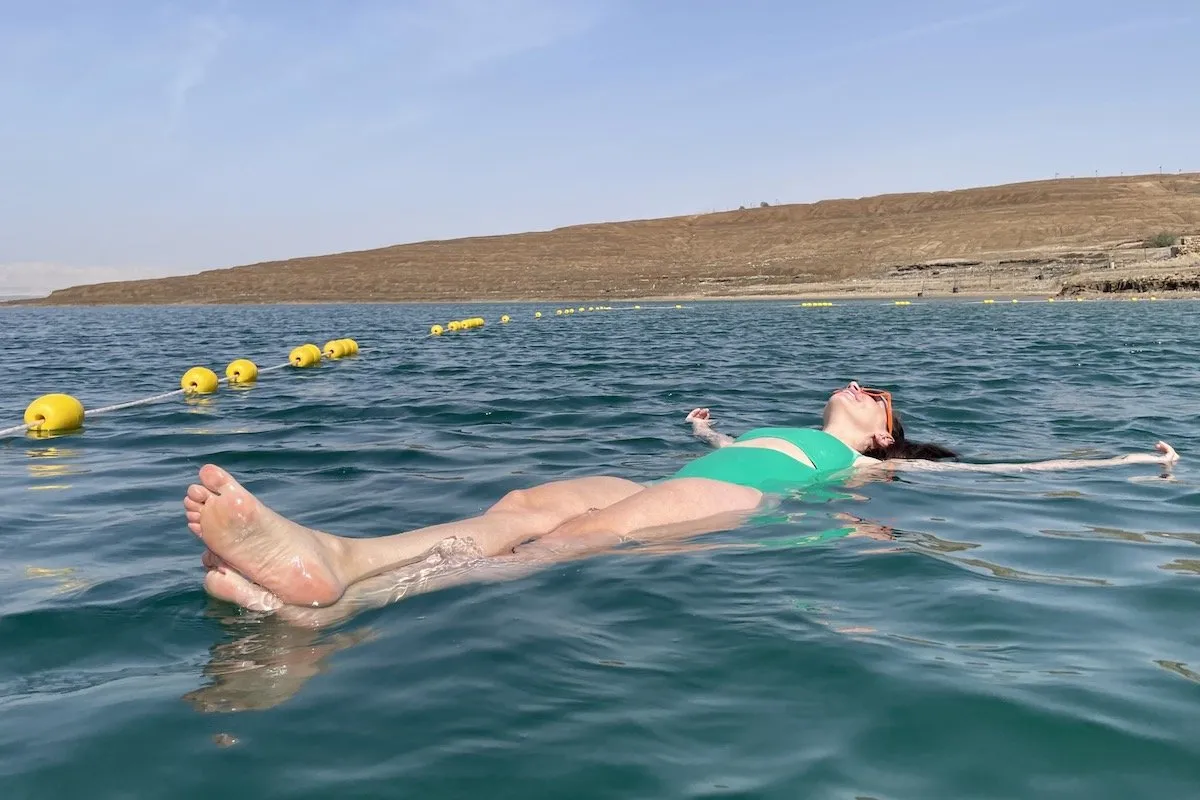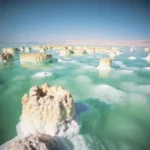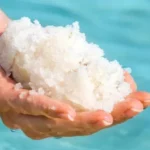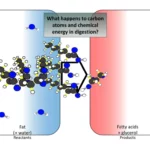Hey there, curious minds! Ever heard of a lake so salty you can’t even sink? That’s the Dead Sea for you! This isn’t your average vacation spot; it’s a natural wonder with some seriously mind-blowing secrets. Get ready to uncover ancient history, hidden benefits, and fascinating facts that make the Dead Sea a must-see destination.
10 Amazing Facts About the Dead Sea
The Dead Sea isn’t your typical lake. It’s more like a natural phenomenon with a reputation for being a bit… different. Let’s explore some intriguing facts about this extraordinary place!
1. The Earth Literally Dips Low Here: Imagine a giant sinkhole brimming with water. That’s a simplified picture of the Dead Sea. Situated a staggering 1,412 feet (430 meters) below sea level, it claims the title of the lowest point on dry land. That’s right, below sea level!
2. Forget the Ocean, This Place is Salty: We’re not talking a sprinkle of salt; the Dead Sea boasts a salinity level of around 34%! That’s almost ten times saltier than the ocean, making it incredibly dense and unique.
3. Floating is Practically Effortless: Trying to float on your back in the ocean can be a challenge. But in the Dead Sea? You practically bounce like a cork! The high salt content makes floating effortless, a truly bizarre and delightful experience.
4. Mud Baths Fit for Royalty: The Dead Sea is famed for its thick, black mud. But this isn’t just any mud; it’s packed with minerals like magnesium and sulfur, believed to have therapeutic benefits for your skin. People journey from across the globe to slather themselves in this natural spa treatment.
5. A Spa Destination for Centuries: The Dead Sea has been a haven for relaxation and rejuvenation for ages. Think ancient civilizations kind of old! People have been drawn to its mineral-rich water and mud for centuries, seeking relief from various ailments.
6. Straight Out of the History Books: You’ll find mentions of the Dead Sea in historical texts and religious scriptures. A significant landmark for thousands of years, it has played a role in ancient trade routes and shaped the region’s culture. For those interested in the past, exploring the historical importance of the Dead Sea reveals captivating insights.
7. Home to Some Seriously Tough Creatures: You won’t find dolphins or whales here. The Dead Sea’s extreme salinity means only specially adapted organisms can survive, like tiny creatures like bacteria and algae that thrive in this super salty environment.
8. A Salt Gradient Like No Other: The Dead Sea isn’t uniformly salty. The salt concentration varies, creating distinct layers within the water. This impacts the ecosystems and the water’s appearance, which can shift from shades of blue to a milky turquoise.
9. From Ancient Remedy to Modern Beauty Products: Those mineral-rich mud and salty water? Well, we’ve figured out how to bottle those benefits (sort of). Today, you can find a range of health and beauty products made with Dead Sea minerals, claiming to soothe eczema and soften skin.
10. Still Shrouded in a Bit of Mystery: Even with all we know, the Dead Sea continues to fascinate scientists. Research is ongoing to understand its unique ecosystem, geological formations, and potential for future applications. It’s a reminder that nature holds incredible wonders.
Why is the Dead Sea so amazing?
You’ve probably heard the Dead Sea is super salty, but it’s really salty – about ten times saltier than the ocean! Minerals constantly flow into the Dead Sea from the surrounding mountains. With the hot, dry climate, the water evaporates rapidly, leaving behind massive salt deposits.
But here’s the fascinating part: that extreme saltiness makes you incredibly buoyant. You can literally float on the surface of the Dead Sea! It seems like magic, but it’s simply science. The high salt concentration creates a dense solution that makes sinking nearly impossible. People travel from around the world to experience this phenomenon and capture enviable photos.
And if floating like a cork isn’t enough, the Dead Sea is also known for its therapeutic qualities. Think of it as a giant, natural spa. The water is packed with minerals like magnesium, potassium, and bromide, which are believed to work wonders for your skin and muscles. For centuries, people have soaked in these mineral-rich waters hoping to relieve aches, improve skin conditions, and feel more relaxed. If you are looking to take care of your skin, you should know about the Dead Sea mineral benefits for skin.
Finally, the Dead Sea holds the record for the lowest point on Earth! It sits at around 430 meters below sea level, nestled in the Jordan Rift Valley. You’re not just having a relaxing spa day; you’re experiencing a unique geographical wonder!
The Dead Sea is a captivating blend of unique natural phenomena and potential health benefits. Scientists are still unraveling its secrets, but one thing is for sure: it’s an extraordinary place.
How Old Is the Dead Sea?
The Dead Sea isn’t some ephemeral puddle; it’s been around for millions of years, shaped by massive geological changes. It’s like holding a piece of ancient history, except this piece is a giant, salty lake.
Scientists estimate the Dead Sea to be somewhere between 7 and 15 million years old. To put that in perspective, that’s older than the Grand Canyon! This places its formation in the late Cenozoic era, a time of significant planetary transformation.
But here’s the catch: the Dead Sea wasn’t always the shrunken, super salty lake we see today. Imagine a massive prehistoric lake called Lake Lisan covering the whole region – that’s the Dead Sea’s ancestor! Over time, Lake Lisan began to shrink due to shifting tectonic plates and relentless evaporation under the desert sun. Eventually, Lake Lisan broke down into smaller, saltier lakes, leaving the Dead Sea as the last one standing.
Today, the Dead Sea stands as a testament to the passage of time, its salt deposits serving as a record of its ancient origins. It’s a captivating blend of unique features: therapeutic waters, incredibly high salt content (ten times saltier than the ocean!), and a buoyancy that makes you feel weightless.
The area surrounding the Dead Sea is an archaeologist’s dream. Ancient scrolls tucked away in caves, crumbling Roman ruins—it’s a history buff’s paradise! These finds demonstrate that people have been drawn to the Dead Sea for centuries, captivated by its mystery and allure.
So, the next time you see a picture of someone casually floating in the Dead Sea, remember this: they’re lounging in millions of years of geological history, a testament to our planet’s constant evolution. Who knows what other secrets this salty giant holds, just waiting to be discovered?
What are some facts about the Dead Sea for kids?
The Dead Sea is like a giant bathtub filled with super salty water! But why is it so salty, and what makes it so special? Let’s dive in and find out!
How is the Dead Sea so salty?
Imagine a pot of water on the stove. When the water boils, it turns into steam and disappears into the air. That’s similar to what happens in the Dead Sea, but instead of disappearing completely, the water leaves behind all the salt it contained.
The Dead Sea doesn’t have any rivers flowing out of it. The hot desert sun bakes the water, making it evaporate. As more water evaporates over time, the salt gets left behind, making the water super salty! It’s about 10 times saltier than the ocean, which is really salty!
Why do people float in the Dead Sea?
Ever tried pushing a beach ball underwater? It’s hard, right? The water pushes back. Now, imagine that beach ball in the Dead Sea. All that salt makes the water much denser, meaning it’s packed tightly together. This extra density makes the water push back even harder, making it almost impossible to sink! It’s like the water is giving you a big hug and keeping you afloat!
What is the Dead Sea good for?
The Dead Sea isn’t just a giant salty pool; it’s also like a giant spa! People travel from all over to relax in its waters. The salt and minerals in the Dead Sea are thought to be really good for your skin, helping to make it feel soft and smooth. Some people even believe that the mud from the Dead Sea can help with certain health conditions.
What’s the lowest point on Earth?
If you dug a hole all the way to the center of the Earth, you’d probably end up somewhere near the Dead Sea! Okay, not really, but it is the lowest point on land, sitting about 1,412 feet below sea level! That means if you were standing on the shore of the Dead Sea, you would be lower than a really, really tall skyscraper!
What lives in the Dead Sea?
With all that salt, you might think nothing could survive in the Dead Sea. It’s true that most fish and plants wouldn’t last very long in such salty water. But, guess what? Scientists have discovered tiny little creatures called bacteria that actually call the Dead Sea home! These tough little guys have found a way to adapt to the extreme saltiness and thrive in this unique environment. Pretty cool, huh?
Key Takeaways:
- The Dead Sea is a lake that’s saltier than the ocean because the water evaporates, leaving the salt behind.
- You float easily in the Dead Sea because the salty water is super dense.
- People believe the Dead Sea has healing properties and is good for the skin.
- The Dead Sea is the lowest point on land.
- Even though it’s very salty, some tiny bacteria can survive in the Dead Sea.
The Dead Sea is a fascinating place full of surprises! It reminds us that even in the most extreme conditions, life finds a way!
What is the mystery of Dead Sea?
The Dead Sea is a captivating name for a place that’s not a sea at all. It’s actually a giant lake, but not just any lake. This one has a story to tell, and it’s a real page-turner!
One of the most intriguing things about the Dead Sea is that it’s the absolute lowest point on the entire planet, sitting 1,410 feet below sea level. It’s like stepping into another world.
And speaking of another world, the Dead Sea is home to some of the most extreme conditions imaginable. The water is so salty – much saltier than the ocean – that most plants and animals can’t survive there. But here’s the twist: it’s not actually “dead” at all! Tiny organisms, like algae and bacteria, have adapted to thrive in this crazy salty environment. It just goes to show you, life finds a way, even in the most unexpected places.
The Dead Sea isn’t just a scientific curiosity; it’s also been a popular destination for centuries for people seeking relief from various ailments. The high salt content and mineral-rich mud are thought to work wonders for skin conditions like psoriasis and eczema. Plus, the water is so buoyant that it’s almost impossible to sink, which is great for people with joint pain or mobility issues.
Sadly, the Dead Sea is facing some serious challenges these days. Because it’s a terminal lake, meaning water flows in but doesn’t flow out, it’s incredibly sensitive to environmental changes. With climate change and water diversion projects taking their toll, the Dead Sea is shrinking at an alarming rate.
It’s a stark reminder that even the most extraordinary places on Earth are vulnerable to human impact. And it begs the question: what will become of this unique and fascinating wonder in the years to come?
What is Special in Dead Sea?
Let’s delve deeper into what makes the Dead Sea so truly one-of-a-kind.
One of the most fascinating things about the Dead Sea is that you don’t actually swim in it, you float! This is because the water has an incredibly high salt content – much saltier than the ocean. This incredible saltiness makes the water so dense that it’s almost impossible to sink! Imagine effortlessly bobbing along, maybe even reading a book. It’s no wonder people flock from all over to experience this unique buoyancy.
But the Dead Sea isn’t just a giant salty swimming pool. For centuries, people have believed in its therapeutic powers. The mud is packed full of minerals, and combined with the mineral-rich water, it’s thought to work wonders for various skin conditions and aches and pains. This belief has spurred a whole spa and wellness culture around the Dead Sea, with people coming to soak up the potential healing properties.
And as if being super salty and potentially therapeutic wasn’t enough, the Dead Sea holds another impressive title: the lowest point on Earth! It sits at a staggering 430 meters below sea level, a fact that draws in geologists and anyone fascinated by the power of our planet’s geology.
The Dead Sea is a unique blend of natural wonder and intriguing science. It’s a place where you can float effortlessly, indulge in potentially therapeutic mud, and stand at a point that marks the very bottom of Earth. This amazing combination of features makes the Dead Sea an alluring and popular destination for travelers, scientists, and anyone looking for an experience unlike any other.
Want to learn more about the Dead Sea? Research into its formation, the unique ecosystem it supports, and the ongoing efforts to protect this natural wonder is constantly evolving. There’s a wealth of information available online and in scientific publications for those wishing to delve deeper into this fascinating subject.
What is unusual about the Dead Sea?
We’ve established that the Dead Sea is a super salty lake nestled between Jordan, Israel, and the West Bank. It’s officially the lowest spot on our planet, sitting way down at about 1,412 feet below sea level. But there’s much more to this place than just its location. Let’s delve into what makes the Dead Sea truly extraordinary.
Why is the Dead Sea so unique? Let’s break it down:
It’s Like Floating in a Salt Shaker:
The Dead Sea is really salty, ten times saltier than the ocean! That’s why you can effortlessly float in it. The salt makes the water denser, so you become more buoyant. Don’t worry about swimming skills here; you practically can’t sink!
Microscopic Life Finds a Way:
You’d think with a name like “Dead” Sea, there wouldn’t be any life in it, right? While you won’t find any fish swimming around, the Dead Sea teems with tiny organisms like bacteria and archaea. They’re tough little critters that can handle even the most extreme environments. It makes you wonder – what other secrets might this salty haven be hiding?
A Mineral Wonderland:
The Dead Sea isn’t just about salt; it’s like a giant mineral bath! The water and mud are packed with things like magnesium, potassium, and bromine. People believe these minerals have special healing powers, and many travel from all over the world to experience Dead Sea mud baths and treatments, claiming it does wonders for your skin!
Good for What Ails You:
There’s a lot of buzz that the Dead Sea can work wonders for your skin. People with conditions like psoriasis, eczema, and even acne claim to find relief after spending time soaking in the Dead Sea. Scientists believe it’s the unique combination of high salt concentration and all those minerals that helps calm inflammation and promote healthy skin.
A Geological Marvel:
Being the lowest point on Earth is pretty cool in itself, but the Dead Sea’s unique location makes it a sight to behold. The vast expanse of water surrounded by dramatic cliffs and rock formations is a photographer’s dream and a stark reminder of the powerful forces that shape our planet. Who knows what other geological secrets lie beneath the surface, waiting to be discovered?
So, What Have We Learned?
- The Dead Sea is incredibly salty – so much so that you can float with ease!
- Tiny but mighty organisms call this extreme environment home.
- It’s a mineral-rich haven, thought to have therapeutic benefits.
- People believe the Dead Sea can help with various skin conditions.
- Its status as Earth’s lowest point makes it a geological wonder.
The Dead Sea is a fascinating place. It’s a blend of extremes – extreme saltiness, extreme depth, and even extreme lifeforms! There’s still so much we don’t know about it, which only adds to its captivating nature. Who knows what other secrets this natural wonder holds? Perhaps one day, you’ll visit and uncover them yourself!
Why is it impossible to swim in the Dead Sea?
We’ve covered how salty the Dead Sea is—way saltier than the ocean. But what does that mean for swimming? It essentially makes traditional swimming impossible. It’s more like…floating. Think of the Dead Sea as one giant buoyancy tank. The salt content is so high, around 34%, that it creates an upward force stronger than the force pulling you down.
As soon as you enter the Dead Sea, you’ll bob to the surface like a cork! You can try to move your arms and legs to swim, but it will feel awkward, and you won’t get far. Some experts suggest this extreme buoyancy is why it’s called the “Dead” Sea. Since nothing can survive in such salty conditions, there’s not much life down there.
However, you can still enjoy the water! Floating in the Dead Sea is unique and relaxing. People come from all over to lie back, relax, and enjoy the feeling of weightlessness. Just don’t try to go for a traditional swim – you’ll likely end up frustrated!
What are the hidden benefits of the Dead Sea?
We know the Dead Sea is supposedly great for your skin, but did you know this place is like a treasure chest of fascinating secrets? The Dead Sea is much more than just a big bathtub full of salt!
Firstly, let’s talk about the tiny critters that call this place home. You wouldn’t think anything could survive in water this salty, but you’d be wrong! Scientists are discovering all sorts of resilient microbes that thrive in this extreme environment. It’s pretty mind-blowing!
And speaking of extreme, the Dead Sea sits at the lowest point on Earth! Its unique geology and formation over millions of years have created a landscape unlike any other. Imagine towering cliffs, shimmering salt formations, and a boundless sky. It’s no wonder people have been drawn to this place for centuries, attracted by its beauty and historical significance.
Think about it: the Dead Sea has existed since ancient times, witnessing the rise and fall of civilizations. People have visited for thousands of years, using its minerals for healing and sharing stories about its mystical properties. It’s a place that connects you to the past.
Now, about those famous Dead Sea minerals. We already know they’re great for our skin, but some experts think they might have even more benefits. Research is ongoing, but who knows what other secrets we might uncover about these potent elements in the future?
The Dead Sea is a constant source of discovery and wonder, from its unique ecosystem to its ancient history. So, next time you hear about the Dead Sea, remember there’s much more to it than meets the eye!
How Dirty is the Dead Sea?
We’ve discussed the Dead Sea’s extreme saltiness and how that creates a unique environment. But how does all that salt affect how clean (or dirty!) it is?
The Dead Sea has no rivers flowing out of it, meaning whatever goes in, stays there. Over time, dust, minerals, and even pollutants from the surrounding land are carried into the sea by wind and occasional rain.
It might sound a bit gross, and it’s not exactly a pristine, crystal-clear swimming pool. But here’s the thing: the Dead Sea is so incredibly salty that most harmful bacteria and microorganisms can’t survive in it. The super salty environment acts as a natural disinfectant.
That said, the Dead Sea isn’t completely immune to pollution. Human activities like agriculture and industry can still have an impact. When considering the health of any natural wonder, it’s always a balancing act.
Researchers continuously study the Dead Sea to understand how pollution might be affecting it long-term. They look at the levels of different chemicals and how the microbial life is doing.
So, is the Dead Sea “dirty”? It’s not your average body of water! It’s a dynamic environment influenced by both natural processes and human activities. But that’s what makes it such a fascinating place.
Does the Dead Sea Have Healing Powers?
We’ve established that the Dead Sea is unique, but let’s explore whether it has healing powers, as many stories suggest.
The Dead Sea is packed with minerals: magnesium, potassium, bromine, and more. Because the water is so salty (much saltier than the ocean), these minerals can be absorbed through your skin. It’s like a giant, natural bath bomb!
Many people believe in the Dead Sea’s ability to help with skin conditions like psoriasis and eczema. The minerals can soothe itchy, irritated skin, and the mud is also said to be super rejuvenating and exfoliating.
Here’s where things get interesting: saying the Dead Sea has healing powers is debatable. While those minerals and the mud can make your skin feel amazing and might even help with certain conditions, it’s not a guaranteed cure-all. Some scientists believe the effects could be more about relaxation and the feeling of being pampered rather than actual “healing.”
Think of it this way: imagine you have a sore muscle. A massage might not magically heal it, but it can make it feel much better. The Dead Sea could be working similarly, providing relief and relaxation that make you feel healed.
However, people have flocked to the Dead Sea for centuries, believing in its therapeutic properties. This place is undoubtedly special, and research is ongoing on the potential benefits of its minerals.
So, does the Dead Sea have magical healing powers? It’s probably more nuanced than that. The Dead Sea might help your body heal itself by creating an optimal environment. It’s a fascinating topic, and who knows what future research will uncover!
- China II Review: Delicious Food & Speedy Service - April 17, 2025
- Understand Virginia’s Flag: History & Debate - April 17, 2025
- Explore Long Island’s Map: Unique Regions & Insights - April 17, 2025

















1 thought on “10 Mind-Blowing Facts About the Dead Sea”
Comments are closed.